UK tea brands drop Indian supplier over work conditions
- Published
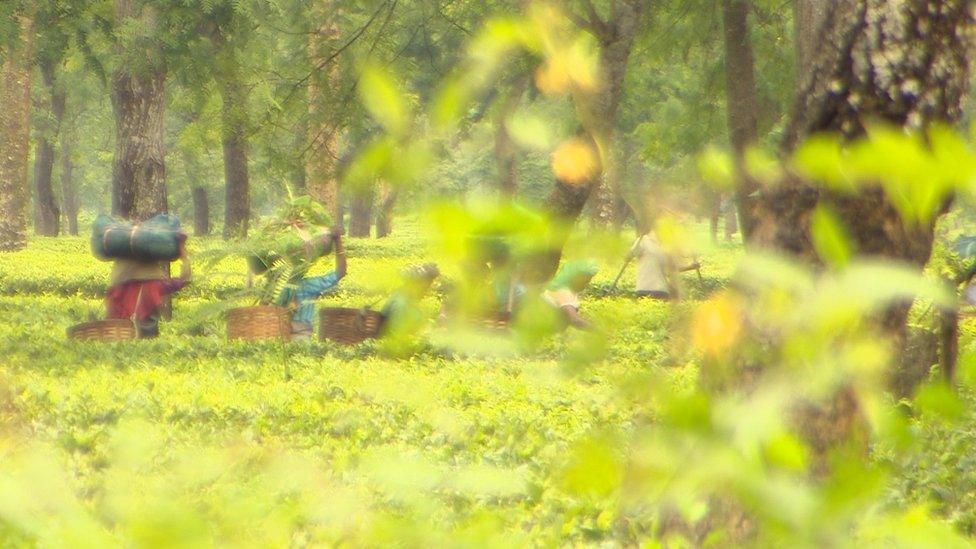
Three of the UK's top tea brands have stopped buying from a group of Indian plantations after a BBC investigation exposed dangerous working conditions.
The BBC found a disregard for health and safety on an estate in north-east India owned by Assam Company.
The Rainforest Alliance, an ethical certification organisation, has now stripped a group of Assam Company's plantations of its green frog seal.
The Assam Company said it was appealing against the decision. A group of Assam Company's estates lost its certification because "it was found to be in breach of critical criteria relating to the use of personal protective equipment", the Rainforest Alliance said in a statement.
The Assam Company said the loss of its certification was because of a "minor error" on one estate - Hajua - while spraying a plant extract, which it understood did not require personal protective equipment. It said that because the Assam company estates operate in a "single cluster", the other estates were automatically decertified.
Twinings, Taylors of Harrogate and Fortnum & Mason have suspended business with the company while Harrods took the tea off its shelves shortly after the investigation, which was broadcast in September.
Workers at the company's Hajua estate were seen spraying agrochemicals without the protective equipment employers are required to provide, when the BBC visited.
Men spraying reported breathing difficulties, numbness of the hands and face, a burning sensation on the skin and profound loss of appetite.
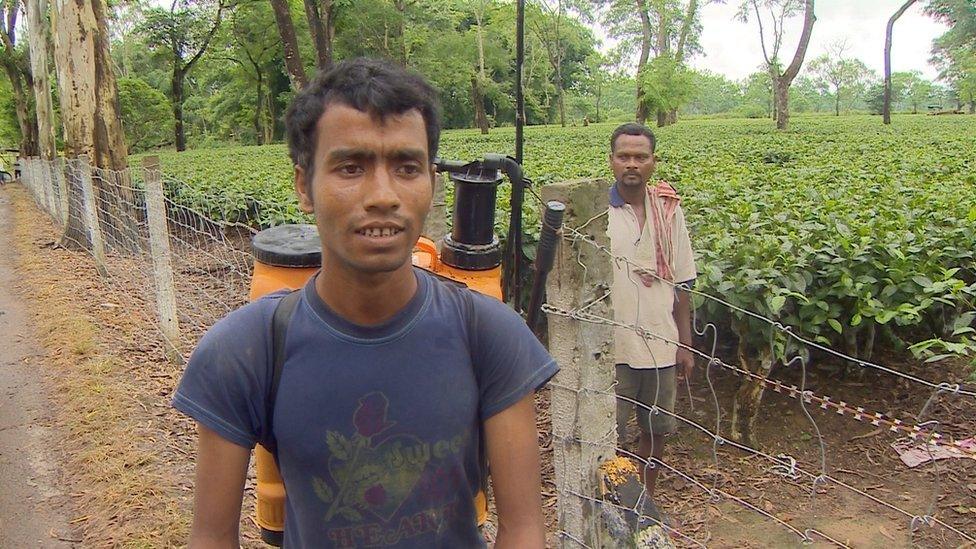
Protective equipment is provided, but not regularly replaced, say workers
The Rainforest Alliance said its auditor confirmed the BBC's evidence of unsafe spraying and the organisation had tightened its rules on the subject.
Taylors of Harrogate said it will maintain a relationship with the estates and support efforts to improve standards.
Twinings plans to continue working with the Ethical Tea Partnership (ETP) - an organisation set up by UK tea companies to improve workers' lives - to monitor the working and living conditions on all the tea estates from which it buys. It also plans to conduct a review of the Assam estates it sources from in the next few months.
Because of the way ETP and the Rainforest Alliance work together, a Rainforest suspension automatically results in a suspension of ETP certification.
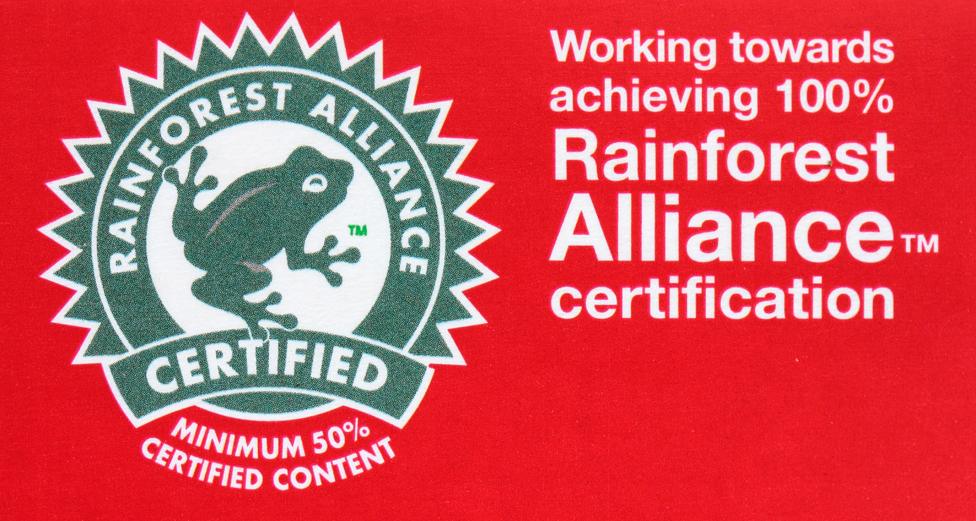
Fortnum & Mason says it will not buy from Assam Company until its "problems have been successfully resolved and they are once again Ethical Tea Partnership certified".
The original investigation also found workers on a number of Assam estates and plantations belonging to other producers living in broken houses with terrible sanitation.
The Assam Company said it was "committed to the practices of sustainability and work to this end is in progress, with most of the work on housing, latrines and creche being planned after the closure of the plucking season, in December to March." It said this had been company practice for "many years".
The Rainforest Alliance has ordered improvements to living conditions on two other plantations, owned by the world's biggest tea producer, McLeod Russel.
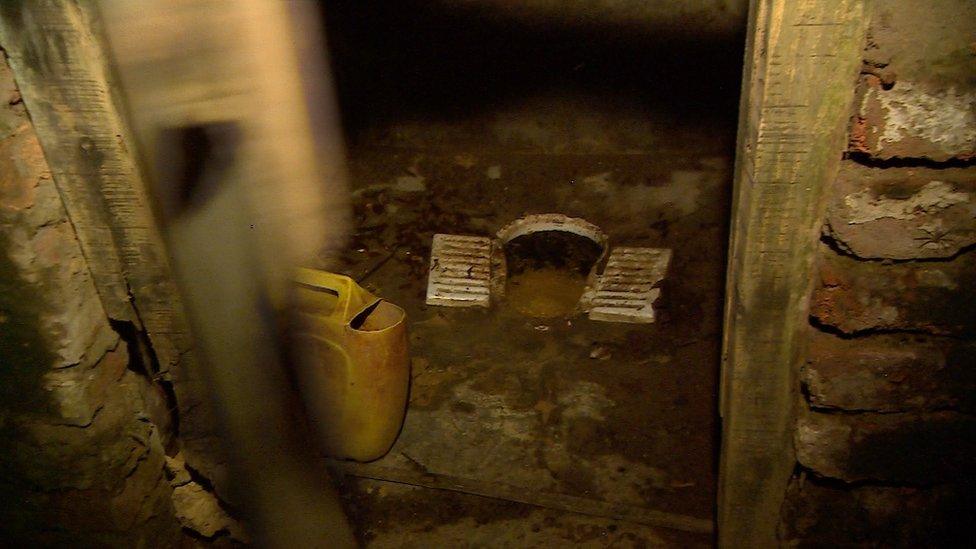
Conditions on a number of different estates were found to be unsanitary
The Moran and Behora tea estates supply the companies that own PG Tips and Tetley, as well as Twinings.
Many workers were found to be living in leaking homes, without electricity. Many of the latrines had been blocked or broken for many years and families said they had no choice but to defecate among the tea bushes.
A manager on the Moran estate admitted there was "a huge backlog of repairs" but the Rainforest Alliance did not decertify McLeod Russel's Assam estates because decent housing and sanitation were "not critical criteria".
However, the Rainforest Alliance has admitted flaws in its audit process and last month made its criteria more demanding, external. Now any estates failing to provide adequate housing, water supply and sanitation will lose their green frog seal of approval.
The Rainforest Alliance has given Mcleod Russel two months to improve conditions for tea workers on the Moran and Behora plantations.
Unilever, which makes PG Tips, told the BBC it welcomes the fact that improvements on areas like housing and health and safety are being accelerated and will be subject to additional monitoring.
Tata, which makes Tetley, said it has met with the producers to understand their plans to address the issues the BBC uncovered. It has been in discussion with the Rainforest Alliance and says it is committed to the fair and ethical treatment of people across its supply chain.
McLeod Russel says work on homes and sanitation on its Moran tea estate has now been accelerated and will be completed by March. It has also improved drainage and laid concrete paths to workers' homes.
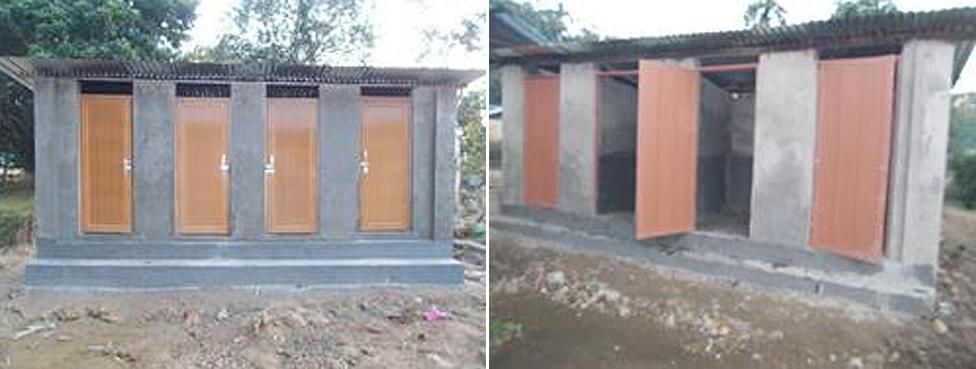
New toilet and shower blocks on the Moran estate
The BBC has been told that conditions on the estate have already improved.
"There has been a change on the Moran estate," says Mohesh Ghatawar, a campaigner with the All Adivasi Students Association of Assam. "Work has started to repair people's homes. And after a meeting with the tea workers' unions we've been told workers will get new toilets and sanitation soon."
The investigation has had an impact beyond India. The Rainforest Alliance has ordered improvements on all the estates it certifies worldwide, including housing conditions, sanitation and access to drinking water.